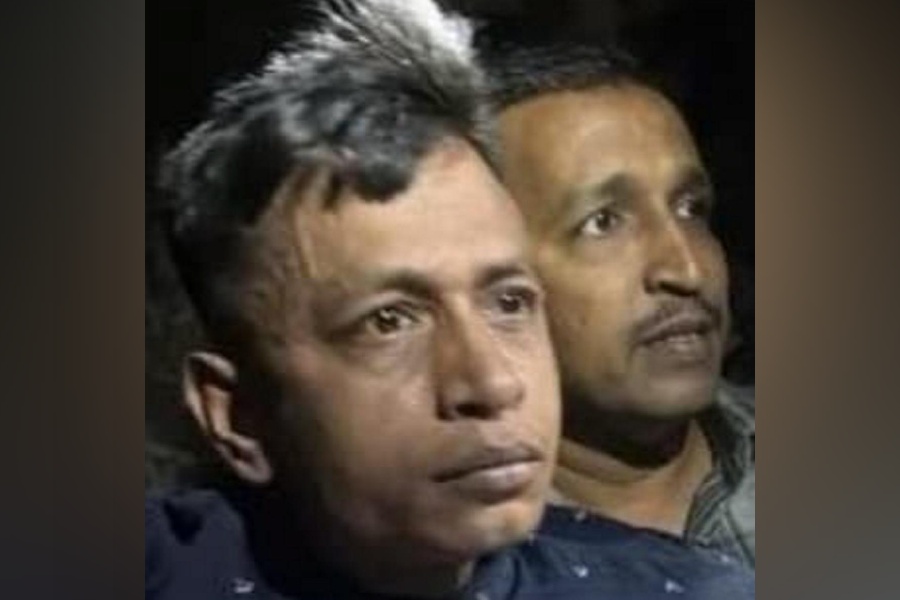India on Wednesday announced a fresh list of 98 military hardware including complex systems, sensors, weapons and ammunition that will only be only be procured from domestic industry after a ban on their import kicks in under a staggered time-line.
Defence Minister Rajnath Singh made the announcement about the fifth positive indigenisation list at the 'Swavlamban 2.0' seminar organised by the Indian Navy.
The key items included in the list are futuristic infantry combat vehicle, remotely piloted airborne vehicles (up to 25 km range with payload of 2 kg for Army), shipborne unmanned aerial system, medium upgrade low endurance class tactical drone, next generation low-level light radar for Army and electro optic fire control system for naval platforms.
The list also comprised armour plates for cabin nose section for Mi-17 helicopter, multifunction aviation ground equipment for Air Force, gravity rollers for Mi-17 V5 helicopter and flares of P-8I and MiG 29-K aircraft.
The new "positive indigenisation list" is in continuation of the first four such lists, which contained a total of 411 military items.
Separately, the Department of Defence Production notified four positive indigenisation lists consisting of 4,666 items, including line replacement units, sub-systems, spares and components for Defence Public Sector Undertakings (DPSUs), according to the defence ministry.
Seventy-five technologies having applications in various military hardware including underwater swarm drones, autonomous weaponised boat swarms and fire fighting systems were displayed at the seminar.
Last year, in the presence of Prime Minister Narendra Modi, the Indian Navy had committed to develop these 75 technologies.
At the seminar, Singh also launched 76 challenges for the industry under 10th Defence India Start-up Challenges (DISC 10) and DISC 10 PRIME of Innovations for Defence Excellence (iDEX).
The defence minister also released the Indian Navy' updated "Indigenisation Roadmap -- Swavlamban 2.0'.
In addition, two 'INDUS-X challenges' under 'INDUS-X Mutual Promotion of Advanced Collaborative Technologies' (IMPACT) challenges jointly finalised by iDEX and the Department of Defence (DoD) of the US were launched by Singh.
The iDEX in partnership with the DoD had recently conducted the India-US Defence Acceleration Ecosystem (INDUS X) event in Washington to expand the strategic technology partnership and defence industrial cooperation between the start-up ecosystems, businesses and academic institutes of the two nations.
In a short span of three months, iDEX and the DoD have finalised two joint 'INDUS X' challenges.
The main highlight of the seminar was the release of the fifth positive indigenisation list of the Department of Military Affairs (DMA).
"Highly complex systems, sensors, weapons and ammunition have been included in the list. All these items will be procured from indigenous sources as per provisions given in Defence Acquisition Procedure (DAP) 2020 in a staggered timeline," the defence ministry said in a statement.
In his address, Singh was of the view that India has always been self-reliant in the field of knowledge and innovation and when the Modi government came to power in 2014, it rekindled the feeling of being 'Aatmanirbhar" (self-reliant) in every sector.
"Due to foreign invasions, we had forgotten our innovative approach. The word 'local' became synonymous with low quality. We're now freeing ourselves from that mentality," he said.
"Our prime minister launched the 'Vocal for Local' campaign and restored respect for local goods. Our youth are now recognising their inner strength and eliminating inner doubts," he said.
"In the coming times, they will play a big role in the development of the country with their innovative approach and knowledge," he said.
The defence minister also called for a careful assessment of the technology challenges -- whether they are state-of-the-art as per today's time and whether any better technology is expected in the near future.
He stressed the need to ascertain whether a technology is already available somewhere in the market or "we're just re-inventing the wheel".
He also pointed out that it is essential to assess the viability of a technology from the point of view of the economy.
This will provide a better value for money on your R and D expenditure, he said.
Singh pitched for devising a robust mechanism to conduct analysis before the introduction of any technology or challenge.
For this, he said, the Department of Defence Production, Defence Research and Development Organisation and the armed forces can together form an independent body of experts, which can further improve the analysis mechanism.
Singh also launched SBI NAVeCash Card which is a one-of-its-kind dual-chip debit card.
It has been developed by the State Bank of India (SBI) and the Indian Navy.
The card can be used in online mode (as a regular debit card) as well as in offline mode when the Navy personnel are at sea with no direct connectivity with the bank.
The card has been developed and tested onboard various Indian Naval ships and is now ready for launch pan-Navy, the defence ministry said.
"The card is a positive step towards the prime minister's dream of digital India with cashless financial transactions as it obviates the usage of cash onboard ships even in high seas," it said.
Except for the headline, this story has not been edited by The Telegraph Online staff and has been published from a syndicated feed.











